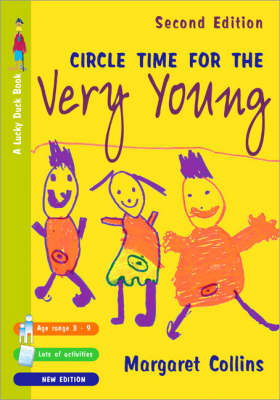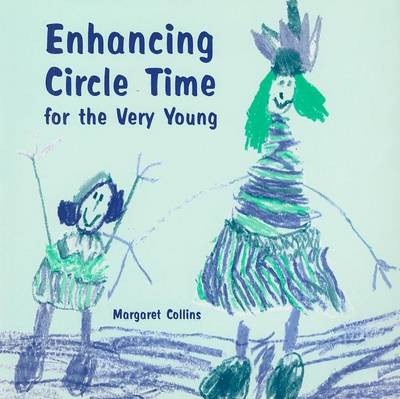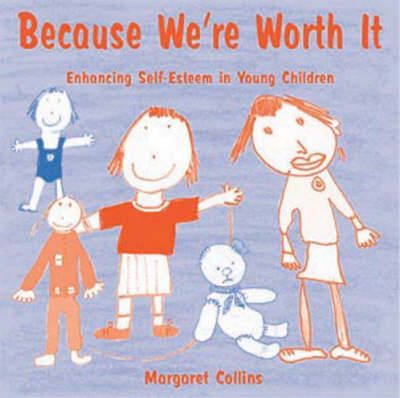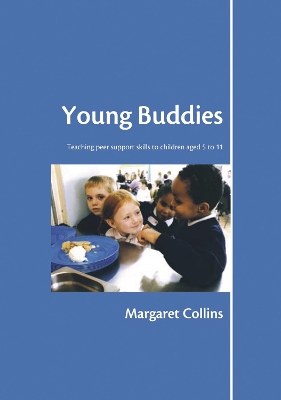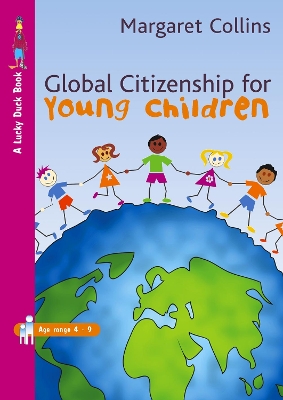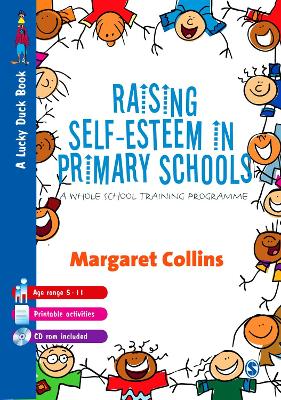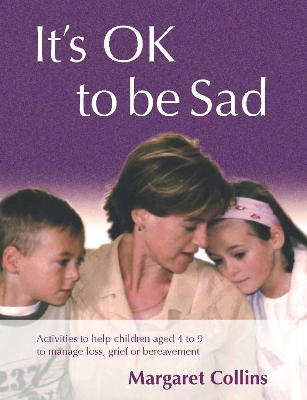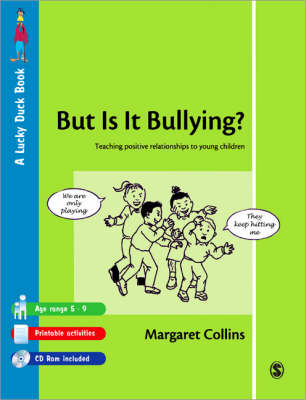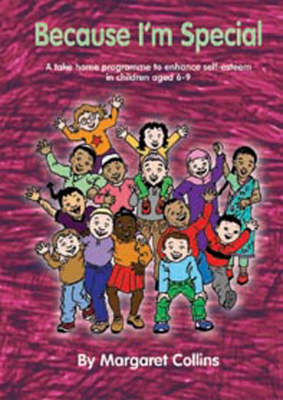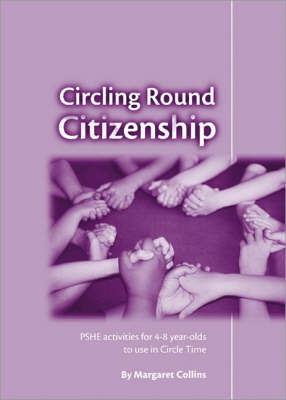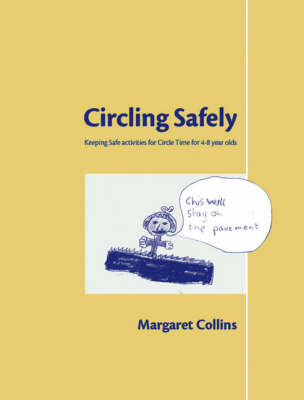Lucky Duck Books
16 total works
' The book shows you how to confidently intergrate music into circle time and will be a useful addition to many teachers' resources'-Early Years Update
'[A]n excellent resource for all teachers looking to introduce music to children aged from four to seven-years-old... The instructions are clear and precise, making it easy to use... an invaluable resource for all busy practitioners' - Early Years Educator
'The book is packed with ideas and the simple format makes it easy to use. Many of the suggestions can be used straight from the book or easily adapted to fit the interests of your own class... The book shows you how to confidently integrate music into circle time and will be a useful addition to many teachers' resources' - Early Years Update
In the same popular and accessible style as Margaret Collins' established and successful Circle Time series, this book provides user-friendly classroom activities to engage young children.
It uses Circle Time techniques to help children use and learn about:
o rhythm, jingles, raps and chants
o songs
o instruments
o ring games
o music, art and story projects.
The enjoyable activities can also enhance learning of other aspects of the curriculum. There is evidence that children who are familiar with a wide ranging repertoire of rhymes and songs learn to read earlier.
Using this book all teachers will be able to use music in their Circle Time sessions in a confident and creative manner.
Margaret Collins is a former headteacher of infant and first schools. She is now Senior Visiting Fellow in the School of Education at the University of Southampton. She researches children's perceptions of health education topics, writes teaching materials for children, books and articles on PSHE.
Margaret Collins has provided accompanying:
- information for adults about the disability or difference
- Circle Time activities for young people aged 6 to 8 and 8 to 11
This book can provide a term's work on inclusion or one story and set of activities can be selected to prepare a class or group for the inclusion of a new member who has a difficulty. The programme also encourages reflection on difference and individuality.
Visit the author's own website here!
There is a growing awareness that healthy eating plays a crucial role in the development of young people. 'Healthy Schools' and popular television programmes have raised the interest in this subject.
Margaret draws on her practical experience to produce a book that will engage children in activities and provides teachers with the resources necessary to stimulate interest.
There are nine themes including breakfast, dinner and parties and celebration. Each theme has a Circle Time start, a draw and talk or draw and write activity followed by activities which include 'Let's Grow It' and 'Let's Make It'.
The involvement of families is encouraged in order to engage school and home in cooperation on the subject of food and health.
Margaret Collins is a former headteacher of infant and first schools. She is now Senior Visiting Fellow in the School of Education at the University of Southampton. She researches children's perceptions of health education topics, writes teaching materials for children, books and articles on PSHE.
Written for anyone using Circle Time with 3 to 7 year olds, this book sets out strategies and activities for making the most out of Circle Time sessions. Pre and post-activities are included, to encourage children to focus on the content of Circle Time as a way of sharing their work, ideas and thoughts.
The book provides 11 different themes that can be linked to PSHCE, ranging from Caring for Others to Keeping Safe. Each theme provides:
o aims
o Circle Time activities
o Draw and Talk
o follow-up activities and suggestions for display
o resources
o reflections and evaluations.
Margaret Collins is a former headteacher of infant and first schools. She is now Senior Visiting Fellow in the School of Education at the University of Southampton. She researches children's perceptions of health education topics, writes teaching materials for children, books and articles on PSHE.
Visit the author's own website here!
'Nothing is so exhausting as indecision, and nothing is so futile' - Bertrand Russell
.. and teachers, parents and carers worry that the decisions that children and young people make might be unwise or dangerous.
Decision making is a skill involving both a cognitive and an affective process. The ability to:
" recognize the thoughts and feelings;
" consider the consequences;
" choose the best outcome;
is a highly valued facility leading to resilience, achievement and responsibility. The skill can be taught and in these three volumes the authors provide all the materials needed to teach a course on decision making at each age level.
The programme provides a menu of stories related to the real life experiences of the young people. Topics are selected to be age appropriate and the series includes:
" Stealing;
" Lying;
" Social behaviours;
" Risks;
" Justice;
" Loss,Grief and Bereavement;
" Prejudice;
" First love;
" Disability;
" Leaving home;
" Family relationships.
The teacher notes indicate 'stopping points' where reflection and discussion is encouraged. A choice of endings is offered or the young people can develop their own ideas about what might happen next.
The course can be introduced at any age or used to develop the skills through school life from early years to the teens.
'The need to work with children to help them understand the complexity of the place and the relationships within which they are growing up is greater than ever. This programme of stories, developed through Circle Time, gives a clear and challenging context for this work to develop' - Support For Learning
'You'd be hard pushed to find a better decision making programme than this excellent set of books... This series will undoubtedly kick-start conversation, prod thinking and stimulate classroom debate' - Times Educational Supplement Magazine
Margaret Collins is a former headteacher of infant and first schools. She is now Senior Visiting Fellow in the School of Education at the University of Southampton. She researches children's perceptions of health education topics, writes teaching materials for children, books and articles on PSHE.
Other books in the series include Tina Rae's Good Choices and Phil Carradice's Life Choices
`For any teacher or school wanting to set up a buddy scheme, or to explore the possibility of doing so, this book contains some useful suggestions, ideas and guidelines. Even if a school did not wish to adopt the buddy system itself, the book contains useful material relating to citizenship and specific problems, like bullying which makes it a potentially useful resource for teachers and schools in general' - Early Education
Peer buddy systems have been demonstrated as very successful with older students. Positive effects are recognized for the individuals befriended and also for the whole community.
Margaret has used her vast experience with younger children to develop a programme which achieves these outcomes at the stage when they are learning the skills of friendship and co-operation.
Using her popular style of differentiating activities and teaching for two age groups, 6-8 and 9-11, Margaret has provided an exciting, innovative and challenging programme which enhances the citizenship curriculum and the atmosphere of the school.
Margaret Collins is a former headteacher of infant and first schools. She is now Senior Visiting Fellow in the School of Education at the University of Southampton. She researches children's perceptions of health education topics, writes teaching materials for children, books and articles on PSHE.
Margaret Collins has used her considerable experience to create another fantastic age appropriate practical resource for children aged 4-9 that widens the concept of citizenship so that it incorporates global issues.
The book explores six topics:
- Basic needs
- Environmental issues
- Fairness
- Exploring various cultures
- Democracy
- Global issues.
Each section has an introductory page and ideas for resources, followed by activities on the same topic differentiated for younger and older primary pupils. Clear guidelines are provided for discussion and activities which could take place in Circle Time. At the end of each section there is a story for children to consider accompanied by developmental activities and activity sheets, as well as a page of reflections related to the global challenges we all face.
This exciting resource will act as a starting point for stimulating teachers and encouraging children to widen their learning. Teachers will be able to use these activities to set further challenges, to help explore current situations and to help with understanding present concerns.
Margaret Collins is a former headteacher of infant and first schools. She is now Senior Visiting Fellow in the School of Education at the University of Southampton. She researches children's perceptions of health education topics, writes teaching materials for children, books and articles on PSHE.
The book comes with an accompanying CD-Rom which contains:
- inset sessions for all adults in the school
- workshops specifically aimed at non-teaching personnel, including mid-day supervisors
- sessions for teachers and classroom assistants
- classroom lessons and activity sheets for the children which can form part of your school's personal, social and health education (PSHE) programme.
This book is a whole school training programme for raising self-esteem and is essential reading for all those working in primary education.
Margaret Collins is a former headteacher of infant and first schools. She is now Senior Visiting Fellow in the School of Education at the University of Southampton. She researches children's perceptions of health education topics, writes teaching materials for children, books and articles on PSHE.
'An ideal resource to use when a child or children in a class are experiencing loss and grief. This area of work makes a vital contribution to bringing one of the most essential learning tasks of life into schools, helping children to recognise the universality of loss and encourage them to feel confident about their own and other people's feelings. If this book was used routinely across the country it would contribute to a significant shift in the environment in which children, and ultimately adults, are able to understand and deal with feelings. If you are a teacher please try and get hold of a copy' - Bereavement Care
`Using stories about life events, Margaret Collins focuses on the needs of 4-9 year olds, and the ways in which they can express concerns, anxieties and grief. She also provides helpful advice for children and adults about how to help others when they are experiencing such difficulties' - SENCO Update
When a child faces a problem with health or disability we are quick to offer support or change our expectations. Sadness, distress, anxiety, whether transient or long-term, can have significant effects on every child but they are invisible and the support or adjustments might not be in place.
In this great resource Margaret uses stories about 20 different life events to:
- illustrate the range of feelings
- give permission for the expression of feelings
- encourage empathy towards others
- demonstrate that loss is a common experience for us all.
The work balances an acknowledgement of the need to express sorrow and sadness with an opportunity to consider how to do something that is positive for oneself or helpful to others.
Margaret Collins is a former headteacher of infant and first schools. She is now Senior Visiting Fellow in the School of Education at the University of Southampton. She researches children's perceptions of health education topics, writes teaching materials for children, books and articles on PSHE.
`The guidance is clear, practical and teacher-friendly and encapsulates current best primary practice' - TES Extra for Special Needs
Bullying establishes itself as soon as young children begin to engage in social groups - someone is left out... someone is different... someone gets hurt. If you are eager to intervene early to support children aged 5 - 12 years in forming collaborative and empathic relationships, this is the resource to help you do it!
Using research findings from over 400 children's views, the book looks at:
- name-calling
- teasing
- excluding
- physical aggression
- verbal harm
- taking and breaking
Each lesson plan follows the same format with a poster-related discussion, class and follow-up activities, developmental work, research activity and lesson review. The book comes with a CD-ROM to print out the six posters as well as 48 individual illustrations. You will not be disappointed with the ease with which the author's ideas translate into classroom use!
Margaret Collins is a former headteacher of infant and first schools. She is now Senior Visiting Fellow in the School of Education at the University of Southampton. She researches children's perceptions of health education topics, writes teaching materials for children, books and articles on PSHE.
Margaret Collins draws on the successful format of her best selling book, Circle Time for the Very Young to present another user-friendly publication that assists in meeting the needs of the Personal, Social and Health Education curriculum.
There are 16 sections focussing on different aspects of safety, from the journey to school, to being in the sun, to interacting with others.
Activities for younger pupils appear on the left hand pages of the book with more challenging tasks for older children on the right. This layout has proven to be very popular with teachers who are looking for ways to offer Circle Time activities differentiated for children of different ages and social competencies.
Each section includes full instructions for:
" Circle Time
" Draw and Talk (younger pupils)
" Draw and Write (older pupils)
" Two pages of developmental activities
" A final page on reflect and remember.
This is a beautifully illustrated book full of brilliant activities that will engage children and promote their learning about safety.
Margaret Collins is a former headteacher of infant and first schools. She is now Senior Visiting Fellow in the School of Education at the University of Southampton. She researches children's perceptions of health education topics, writes teaching materials for children, books and articles on PSHE.

